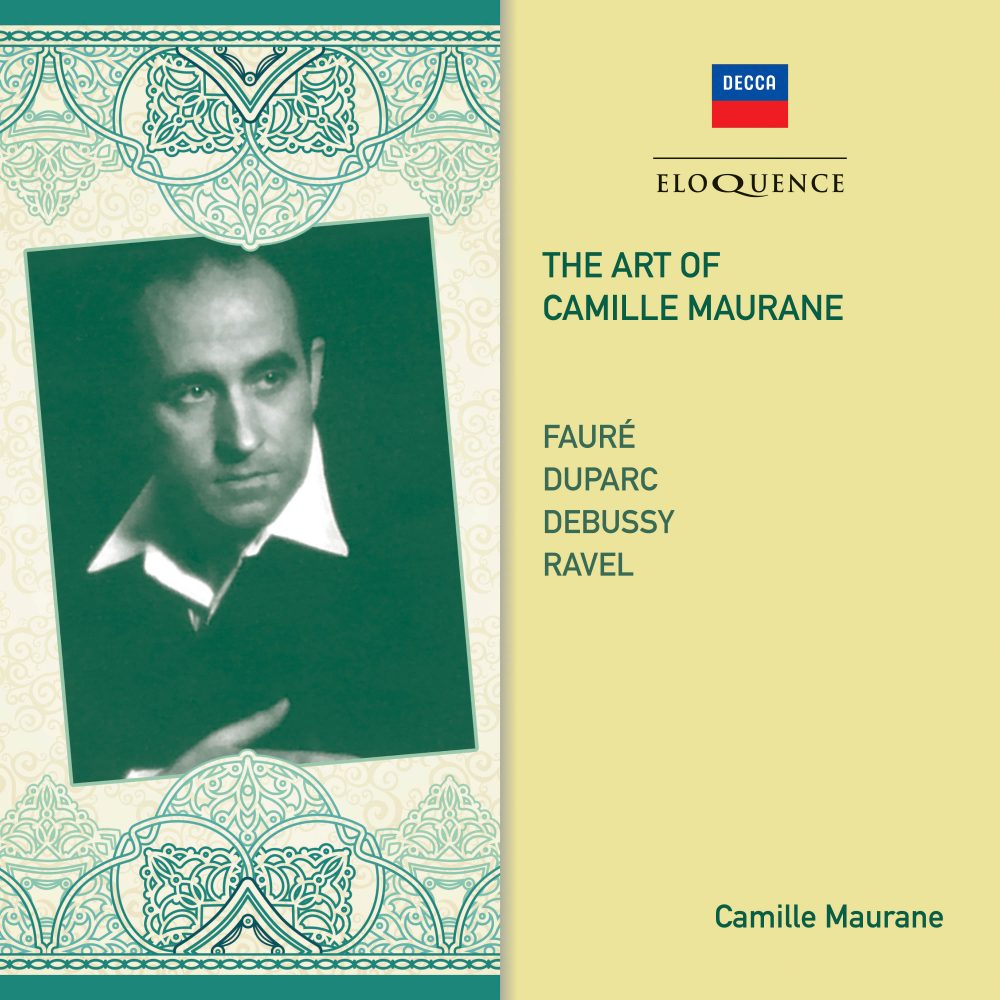The complete Philips recital recordings of a leading French baritone of the postwar era.
The tessitura of Maurane’s fine voice with a pleasant low register and clear, fluent top notes like a tenor’s, places him in that splendid line of French baryton-Martin, named after the early 19th-century singer, Jean-Blaise Martin. More modern exponents include Pierre Bernac, creator of many songs by Poulenc and Jacques Jansen, a subject of a tribute on record by Eloquence (482 4603) featuring Decca recital recordings of Debussy, Chabrier, Ravel and Reynaldo Hahn.
Jansen’s contemporary, Maurane (1911–2010), was an equally renowned exponent of the role of Pelléas in Debussy’s opera for which his delicately shaded palette of timbres was ideally suited. Maurane’s longevity and diligently maintained technique allowed him to continue singing well into his 70s. Throughout his career, he retained his clear diction and a mode of restrained expression which had been the hallmarks of his teacher at the Conservatoire, Claire Croiza.
However, his voice was in its prime when these recital recordings were made in Paris in 1954–55 for the then-new Philips label. As Daniele Pistone observes, in a newly commissioned appreciation for the booklet, for Maurane, music was all about nuance and with the most subtle command of nuance he would try to find the best blend of colours, heightened by the silences between the music. From the spareness of Debussy’s Trois ballades de François Villon to the clarity of Ravel’s Don Quichotte à Dulcinée as well as the more intense expression of Duparc’s songs, he is at the height of his powers; he moulds syllables, shapes ideas and in a superbly evocative manner, demonstrates the art of turning music into speech.
CD 1
HENRI DUPARC
L’invitation au voyage
Soupir
Testament
Sérénade florentine
La vague et la cloche
Lamento
La vie antérieure
Phidylé
Extase
Elégie
Le manoir de Rosemonde
Chanson triste
CD 2
GABRIEL FAURÉ
La Bonne Chanson, Op. 61
Camille Maurane, baritone
Lily Bienvenu, piano
CLAUDE DEBUSSY
Trois ballades de François Villon
MAURICE RAVEL
Don Quichotte à Dulcinée
Camille Maurane, baritone
Orchestre des Concerts Lamoureux
Jean Fournet
THE COMPLETE PHILIPS RECITAL RECORDINGS OF CAMILLE MAURANE
Recording Producers: Jaap van Ginneken (Debussy, Ravel); unidentified (Duparc, Faure)
Balance Engineers: Henk Jansen, Hans Lauterslager (Debussy); Hans Lauterslager, M. Poutot (Ravel); unidentified (Duparc, Faure)
Recording Location: Salle Apollo, Paris, France, 7–8 October 1954 (Debussy), 17–18 November 1955 (Ravel); France, February 1954 (Duparc), February 1955 (Fauré)
Remastering Engineer: Chris Bernauer
Original Philips LP Releases: A00225Y (Duparc); A06070Y (Fauré); A00469Y (Debussy, Ravel)
‘Camille Maurane is naturally sympathetic and his style has a parlando element … he is very well accompanied and the balance is excellent.’ Gramophone (La bonne chanson)
‘In the Duparc group, one can hear why Maurane was so admired in France … his beautiful baritone, never forced, caresses the words and the vocal line.’ Gramophone

